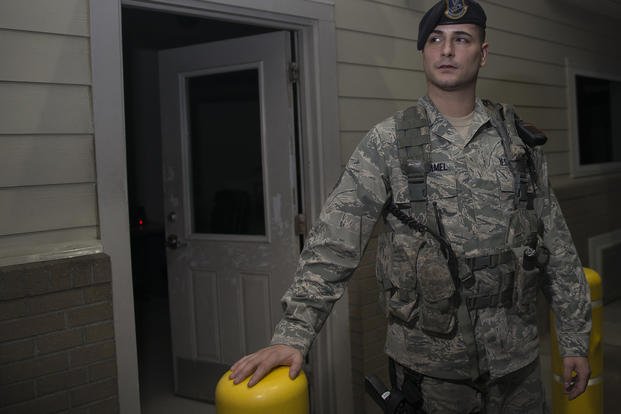This week's email request is from a man who is working the night shift and he is preparing to join the military. As his sleep schedule has changed, so has his energy levels and desire to workout. See request for help:
Stew, HELP! I am now working the night shift and need some help with when to exercise and when to eat from my normal routine. I see my waist growing each week. I have about six months before I join the military.
Here is a great group discussion for the Military.com reader population who have some experience with working nights, either in the military or as civilians. My experience working nights during training was extensive, but it helped by continuing to exercise, eat right and sleep. Here are some tips you must do to help you not only stay awake during the night shift but to have energy to work, exercise and live a somewhat normal life on your time off.
1. Sleep. You have to get good at sleeping during the day. Blacken your windows and make your room dark, quiet and comfortable. You will be tired, but your sleeping patterns are thrown off by 8-12 hours so you have to be ready to sleep when you have time to sleep. Have a small snack an hour before sleeping, such as cereal or a big glass of milk, and avoid any caffeine or nicotine if you can.
2. Work out. I always have found that exercise awakens me so I prefer to work out before going to work rather than when I get off work. Take 30-45 minutes before your night shift starts and exercise with weights, calisthenics and cardio, then shower. This will boost your metabolism, keep you more alert for a while and click one of the "must dos" off your list. You will see that it is very tough to get started on a workout after your shift is complete, and it also will make your sleep schedule harder to keep by temporarily waking you up.
3. Eat. Make your own lunch. Bring in healthy foods like fruits, vegetables, nuts, water, juices, sandwich and other favorite foods. There often is nothing good for you to eat at 2 a.m., no matter where you are. Eat a meal before work, have a snack 3-4 hours into your night shift and then a light meal as your last meal prior to leaving work. You could wait until you get home for this meal.
4. Hydrate. When in doubt, drink water. We often confuse hunger with being thirsty or dehydrated, so stay hydrated and it will curb your hunger.
So in a nutshell, here is how a typical night shift worked for me:
- 6 a.m.: Get off work. Go home.
- 7 a.m.: Go to sleep after a light snack of breakfast foods and sleep until noon-2 p.m.
- 2-6 p.m.: Personal errands, etc.
- 6 p.m.: Eat dinner.
- 7:30-9 p.m.: Work out, shower, light post-workout recovery meal
- 10 p.m.: Start work.
- 1 a.m.: Fruit/vegetable snack, caffeine (if needed)
- 3 a.m.: Hydrate, meal/snack
- 5 a.m.: Hydrate and/or snack on nuts/berries
- 6 a.m.: Get off work. Go home.
This schedule may not work for you as there are different night shifts and hours, but you basically can see what an eight-hour shift would look like when working during your normal sleep period. Good luck with your program and keep trying to get into a habit or system of healthy living, even though your schedule is upside down.
Stew Smith is a former Navy SEAL and fitness author certified as a Strength and Conditioning Specialist (CSCS) with the National Strength and Conditioning Association. Visit his Fitness eBook store if you're looking to start a workout program to create a healthy lifestyle. Send your fitness questions to stew@stewsmith.com.
Want to Learn More About Military Life?
Whether you're thinking of joining the military, looking for fitness and basic training tips, or keeping up with military life and benefits, Military.com has you covered. Subscribe to Military.com to have military news, updates and resources delivered directly to your inbox.




















